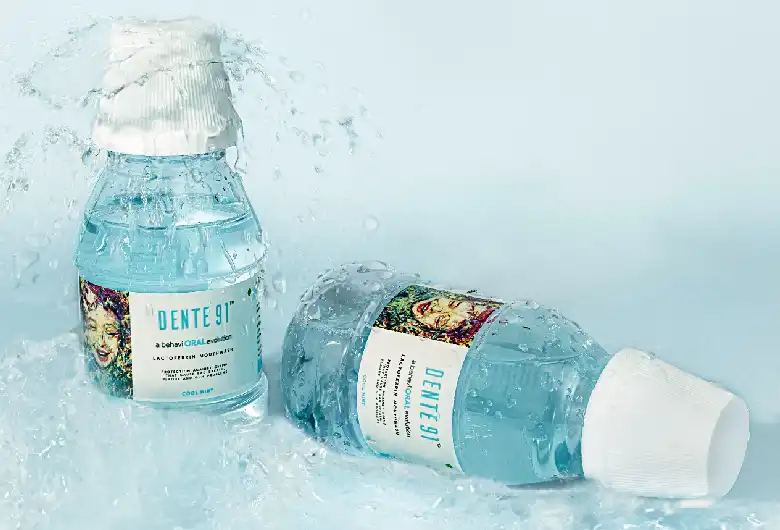What do your teeth say about your health? Well, much more than you might even realize. Maintaining good oral health is about achieving a sparkling smile and preserving overall health. Poor dental hygiene may lead to severe as well as fatal health complications. So, do you want to know how your teeth offer clues about your general health? We’ve got you covered here. Also, learn the most effective ways to protect your teeth, gums, and mouth to protect the rest of your body.
The Basics of Oral Healthcare
It all begins with proper cleaning of the teeth and the gums. If you start following the best dental hygiene practices at a young age, you do not need to worry about your oral health in the future. Daily brushing and flossing habits can prevent issues like cavities, gum diseases, etc. It would be best if you could avoid the consumption of tobacco and alcohol.
Common Dental Problems
When you fail to keep your teeth and your mouth healthy, you are at a higher risk of developing oral complications. Some common minor dental conditions include:
- Halitosis (chronic bad breath)
- Xerostomia (dry mouth caused by inadequate production of saliva)
- Toothaches caused by decay in teeth
- Gum recession (gums wear away from the teeth by exposing their roots)
- Sensitivity to hot, cold, or sweet substances
- Burning or tingling sensation in the mouth
- Breathing through the mouth during sleep
- Bruxism (excessive teeth grinding or jaw clenching)
- Cracked teeth syndrome (cracks developed in teeth)
- Temporomandibular joint dysfunction (extreme jaw pain)
- Gingival hyperplasia (overgrowth of the gum tissue)
These conditions can often lead to more severe complications, such as cavities, abscesses, gingivitis, oral thrush, periodontal disease, canker sores, and so on. As a result, you may end up experiencing chronic gum diseases, permanent tooth damage, tooth loss, or even mouth cancer.
How is Oral Hygiene Linked to General Health?
It is said that a healthy mouth is a gateway to a healthy body. But how does this mouth-body connection work? Let us explain.
Our mouth contains many good and bad bacteria, mostly built up on teeth. The natural defense system of the body, combined with proper dental hygiene, can keep them under control. However, not practicing good dental hygiene makes you highly vulnerable to those harmful microbes. Certain medications (painkillers, antidepressants, diuretics, etc.) may also encourage the growth of oral bacteria by reducing saliva flow in the mouth. All these prompt the immune system to target the bacteria, thus triggering inflammation in the infected gums. The condition deteriorates over time and results in a severe gum disease called periodontitis by damaging the soft tissues and the bones supporting the teeth. Eventually, it makes other body organs susceptible to bacterial attack, putting overall health at risk. (1)
Also Read – Home Remedies for Dental Fluorosis to Get Your Beautiful Smile Back
Health Conditions Linked to Oral Hygiene
Studies revealed that serious gum diseases caused by bad dental hygiene could make people as much as 40% more susceptible to chronic health conditions (2). The most common risk factors associated with negligence of oral hygiene and health include but are not limited to the following:
- Diabetes: In periodontitis, inflammation prevents the body from utilizing insulin hormones to control blood sugar levels. It becomes even more complicated when high blood sugar further makes the body more prone to infections. (3)
- Cardiovascular Diseases: Almost 91% of cardiac patients have been found to have periodontitis, as the inflamed mouth causes inflammation in the blood vessels. This directly raises the risk for cardiovascular issues like high blood pressure, clogged arteries, endocarditis, etc., which may lead to fatal consequences like heart attack, stroke, etc.
- Birth Complications: Periodontitis has been known to interfere with the development of the fetus in the womb, while hormonal fluctuations during pregnancy aggravate the condition. As a result, women may experience premature birth or low birth weight at the time of delivery.
- Osteoporosis: The inflammation provoked by periodontitis attacks the jawbone and weakens the bones in other body parts. This results in a bone-weakening disease called osteoporosis, and you may face bone and tooth loss.
- Respiratory Diseases: The bacterial infection in periodontitis can also spread from the mouth to the respiratory system. As the amount of bacteria increases in the lungs, certain respiratory conditions like pneumonia, chronic obstructive pulmonary disease, etc., turn even worse.
How to Develop a Hygienic Oral Behaviour?
We must be more serious about this for perfect oral and general well-being. Science has proved that following specific lifestyle and behavioral approaches can avert many oral health conditions and diseases. However, having poor dental practices or using commercial dental products with unsafe ingredients often fails to guide and aid us in taking the best care of our oral health. So, the trick is to resort to solutions that can help maintain the oral flora or symbiosis safely and delightfully by destroying the harmful bacteria and increasing the good bacteria. This will develop comprehensive oral hygiene behavior while ensuring good overall health.
How do you pick the proper oral care solutions?
The ideal oral care product enhances our daily oral care practices. Therefore, ensure that your go-to products are powered by selective natural and wholesome elements already present in the body and protecting it but got affected over time due to daily wear and tear. Given below are such active ingredients that can support active oral health naturally with their evolutionary benefits:
Lactoferrin:
It is a multifunctional endogenous protein with evolutionary antibacterial, anti-fungal, and anti-inflammatory properties. Lactoferrin’s high iron-binding capacity helps prevent harmful bacteria’s growth by ruining their structure. When used in oral care products, it amplifies the defensive power of the natural salivary Lactoferrin to shield the oral cavity from pathogens like Aggregatibacter actinomycetemcomitans, Streptococcus mutans, etc. Simultaneously, it supports the growth of good bacteria in the body, like Lactobacillus and Bifidobacteria, which require meager amounts of iron.
nHAP (Nano-hydroxyapatite):
It is a nano-sized version of hydroxyapatite, which makes up 97% of our tooth enamel and, thus, works as the building block of the teeth. Incorporating it in oral care products aids in rebuilding teeth through natural repair and re-mineralization without the damaging effects of fluoride. The synthesized nanoparticles can also treat hypersensitivity by effectively sealing cavities and reducing tooth decay.
Thankfully, these active ingredients can now be easily accessible with Dente91 products.
Dente91 is an oral care range crafted to bring behavioral evolution in India. It focuses on spreading awareness about oral hygiene and making oral care routine a safe and delightful experience. Their products are specially formulated with nap and Lactoferrin to give you all the oral care benefits you need. The oral care range helps fight sensitivity, remineralizes teeth, maintains oral health, and has antimicrobial properties, making Dente91 products a game changer to your oral care regime.
Click Here To Know More About Dente91
With breakthrough products like the Dente91 toothpaste and Dente91 mouthwash, you can stay assured that your teeth are getting complete care in terms of protection from oral diseases and enhancing oral balance. This easily translates to good health and better well-being.
Best Oral Care Practices for Good Health
So, what essential practices can help you stay on top of basic oral hygiene to safeguard your general health? Here we go:
- Brush your teeth at least twice daily to keep them clean and healthy.
- Use a soft-bristled toothbrush and move it in gentle, circular motions.
- Floss in between your teeth daily to avoid cavities and gum diseases.
- Gently clean your tongue daily after brushing.
- Use mouthwash to ensure no food particles are left there after brushing and flossing.
- Eat food items that are rich in calcium and vitamin C.
- Limit your intake of sugary, starchy, and acidic food.
- Drink fluoridated water to supply natural fluoride to your tooth enamel.
- Consume alcohol in moderation.
- Stay completely away from tobacco.
It would be best to visit your dentist every six months for routine oral check-ups and cleanings. Also, look for indications like pain, tenderness, swelling, blisters, bleeding, color or texture changes in soft tissue, ulcers, etc. Consult your dentist immediately, as these may be the signs of potentially serious oral conditions that can lead to significant health problems.
Also Read – Home Remedies for Dental Fluorosis to Get Your Beautiful Smile Back
References:
- “Oral Health: A Window to Your Overall Health,” MayoClinic.org
- “Oral Health: The Mouth-Body Connection,” WebMD.com
- “5 Ways Diabetes Can Affect Your Mouth”, MouthHealthy.org


